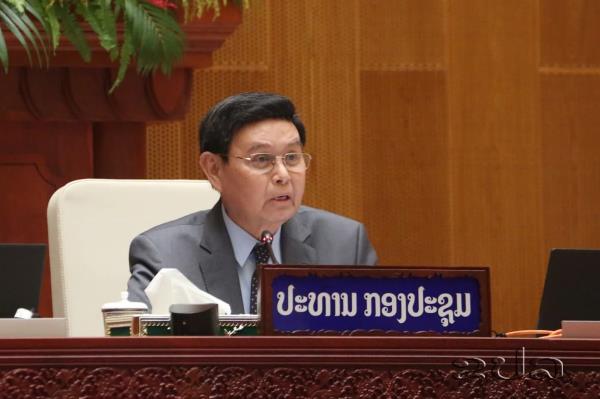KPL
In a significant move to strengthen the economy and improve the well-being of its citizens, the National Assembly has presented key recommendations to the government aimed at addressing critical challenges and enhancing the implementation of the national socio-economic development plan.

(KPL) In a significant move to strengthen the economy and improve the well-being of its citizens, the National Assembly has presented key recommendations to the government aimed at addressing critical challenges and enhancing the implementation of the national socio-economic development plan.
The recommendations were made during the 9th Ordinary Session of the 9th Legislature, held on June 11, 2025. President of the National Assembly, Mr. Xaysomphone Phomvihane, commended recent progress, noting that the national economy grew by 4.5% in the first half of 2025. He also highlighted signs of easing inflation both indicators that the country is moving in a positive economic direction.
Despite these gains, the National Assembly underscored the need for greater intersectoral coordination to ensure long-term, inclusive growth. The Assembly called for improved execution of the state budget, enhanced domestic production particularly in the agricultural sector and the adoption of policies that reduce the country’s dependence on imports.
Key recommendations included boosting investment in strategic industries, increasing support for small and medium-sized enterprises (SMEs), and accelerating the use of modern technologies to improve productivity. By encouraging local manufacturing and promoting digital trade and tourism, the government aims to create more employment opportunities, reduce poverty, and expand national income.
The Assembly also stressed the importance of enhancing state revenue collection in accordance with legal frameworks and the nation’s economic potential. It set a target to increase domestic revenue to between 12% and 20% of GDP. This would involve strengthening tax administration, optimizing contributions from state-owned enterprises, and ensuring transparency in land management, natural resource use, and investment agreements.
Additionally, the Assembly urged the government to help reduce production costs by supporting the use of local inputs—such as fertilizers and animal feed—that are currently heavily imported. Strengthening local production capacity is expected not only to lower costs and improve food security but also to open new avenues for exports.
These forward-looking proposals reflect a unified commitment by the country's leadership to pursue sustainable development and improve the quality of life for all Lao citizens. If implemented effectively, they promise to build a stronger economy and a more resilient society in the years ahead.
KPL